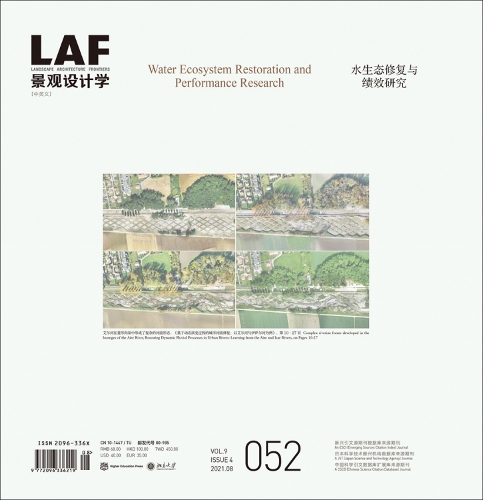
Landscape Architecture Frontiers 052: Water Ecosystem Restoration and Performance Research
(Paperback)
Publishing Details
Landscape Architecture Frontiers 052: Water Ecosystem Restoration and Performance Research
By (Author) Kongjian Yu
By (author) G. Mathias Kondolf
By (author) Ying Long
By (author) Nian She
By (author) Yingxia Xie
By (author) Lian Tao
By (author) Guoping Huang
Oro Editions
Oro Editions
23rd March 2022
United States
Classifications
General
Non Fiction
Physical Properties
Paperback
138
Width 279mm, Height 292mm
624g
Description
As the key to sustaining health of river basins and improving livability for a city, water ecosystem can provide rich ecosystem services supporting human well-beings. However, traditional techniques of gray engineering have resulted in negative impact on water ecosystems, directly or indirectly, exacerbating problems such as water shortage, water body pollution, water ecological damage, and water culture loss. Scholars attach more and more importance to the research on water ecosystem restoration based on a holistic perspective. Water ecosystem restoration theories have also seen a development from structural studies on rivers, lakes, and wetlands towards holism studies on water ecosystems by exploring related impact factors, restoration processes, scales, mechanisms, and models. In turn, associated restoration practices provide evidences for further theoretical exploration, among which nature-based approaches to water ecosystem restoration has become important measures to respond to the complex challenges of naturalsocialeconomic systems and to enhance the overall water ecosystem services. At present, scholars have worked on extracting restoration modes, patterns, and techniques from traditional ecological wisdom (e.g., traditional agricultural terraces and dike-ponds) for contemporary practices, which have witnessed sound ecological and social performance. However, under pressures of intensified climate change and the increasing need for water resource utilization, research on the related responses and performance of water ecosystem at different scales remains insufficient. The goals and methods of water ecosystem restoration are often unclear, and long-term monitoring or evaluation of restoration performance is also inadequate.
In this issue, LA Frontiers focuses on:
1) Exploring nature-based water ecosystem restoration theories rooted in locality;
2) Studying the adaptive mechanisms, key design parameters, and ecosystem services of traditional ecological wisdom;
3) Combining traditional ecological approaches with contemporary water ecosystem restoration technologies, and the methods, practice processes, and optimization mechanisms of enhanced design;
And 4) the research on the analysis, test, and evaluation of water ecosystem restoration performance of nature-based approaches at different scales.
Water ecosystem restoration requires a dynamic and complex nonlinear workflow, which faces many problems and challenges. This issue, by presenting latest research and cutting-edge practice cases worldwide, is expected to introduce nature-based water ecosystem restoration insights and methods which are rooted in locality and can enhance restoration performance, and new measures for performance research and operation test, so as to inspire new research and practice for urban and rural water ecosystem restoration and sustainability.
Author Bio
Kongjian Yu has a Doctorate in design from the Graduate School of Design, Harvard University, he is an Honorary Foreign Fellow of the American Academy of Arts and Sciences and professor at the College of Architecture and Landscape, Peking University. G. Mathias Kondolf is a professor in the Department of Landscape Architecture & Environmental Planning, College of Environmental Design, University of California, Berkeley. Ying Long is a research fellow and PhD supervisor at the School of Architecture and Hang Lung Center for Real Estate, Tsinghua University. Nian She is the deputy director and visiting professor at the Institute of Construction Engineering Ecological Technology, Shenzhen University, as well as the chairman of the Low Impact Development Modeling Committee, and Member of the Standing Committee of the Urban Water Resources Research Council, American Society of Civil Engineers. Yingxia Xie is a professor and senior engineer, is the deputy secretary-general of Chinas Urban Water Association, and the former vice president of the Institute of Water and Engineering, China Academy of Urban Planning and Design. Lian Tao is the director of Landscape Design for AECOM, Shanghai. Guoping Huang is an assistant professor of urban and environmental planning at the School of Architecture at the University of Virginia. He is the director of the Spatial Analysis Lab at the University of Richmond.
